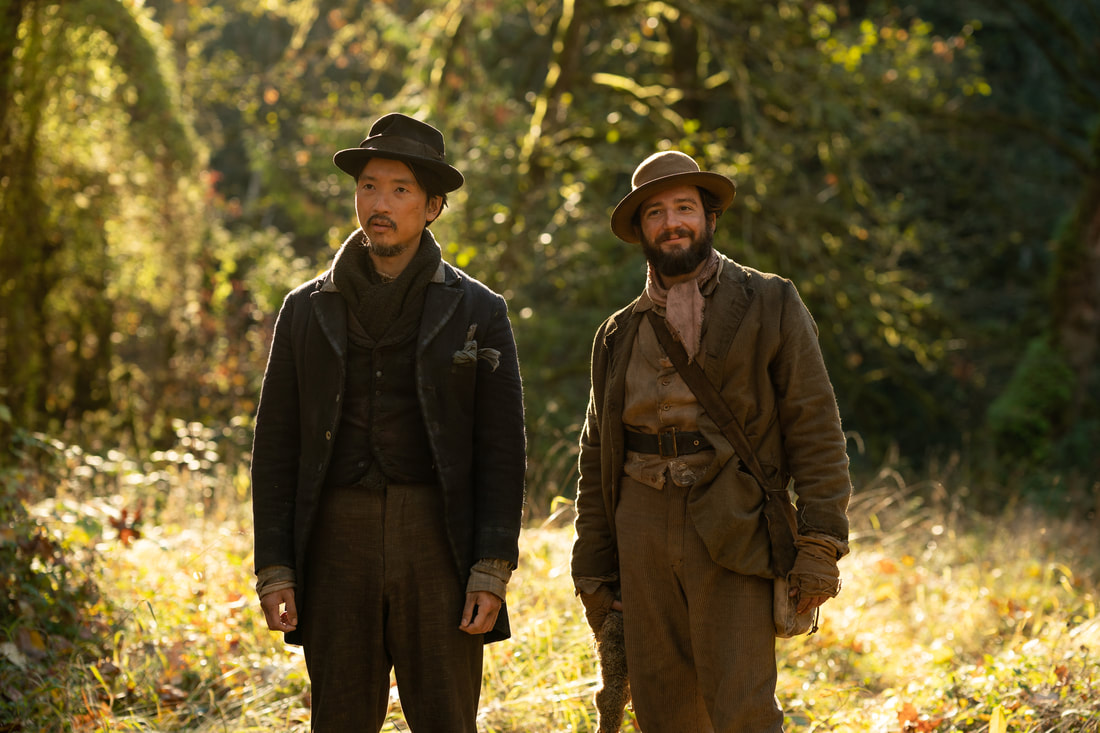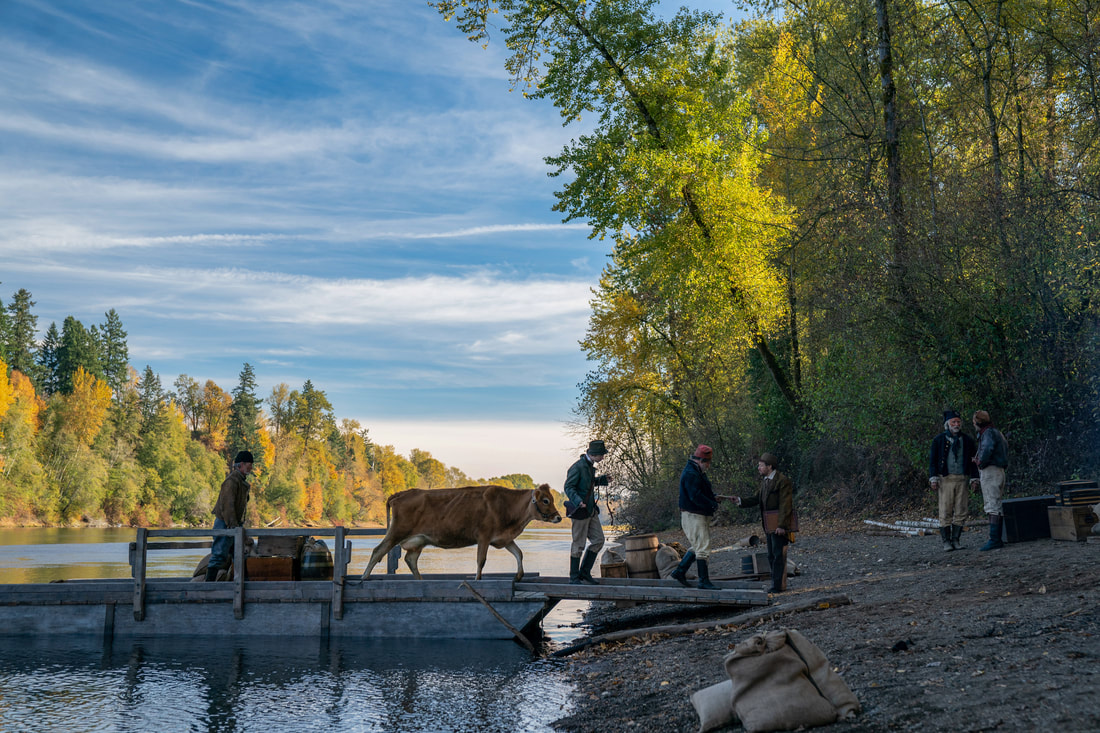|
Review by Sean Boelman
Having become known for her restrained and subtle style of filmmaking, Kelly Reichardt has proven herself to be one of the most compelling directors working in Hollywood today. Her newest film, First Cow, sees her return to the Western genre (after the very good Meek’s Cutoff), though there is a lot that makes this stand out from her other work.
The movie follows a gifted cook who travels west but feels out of place among the other settlers until he befriends a Chinese immigrant with whom he partners to form a very successful business. Based on the novel by Jonathan Raymond (who co-wrote the screenplay with Reichardt), this is certainly a more plot-driven script than her other work, but that doesn’t mean it loses its personal touch. One thing that allows this to stand out from the rest of Reichardt’s filmography is that it is told with a much greater sense of humor. The film almost shares more in common with buddy movie Old Joy than bleak Western Meek’s Cutoff, as it is, above everything else, an uplifting tale of friendship. Of course, the movie still has the expected level of realism about it. The messages about xenophobia and the treatment of immigrants is quite interesting. Admittedly, the film does lose a bit of its authenticity by using a white person as the protagonist, his experiences seemingly used to mirror the immigrant experience in a way more palatable to mainstream audiences. That said, the characters are still very compelling. By emphasizing the friendship that forms between the two leads, the movie has a lot more relatability than it otherwise would have. At times, it almost seems like the immigrant character is going to become a version of either the “Magical Negro” or “noble savage” archetypes, but it does largely avoid that pratfall.
John Magaro gives a phenomenal performance in his leading role, taking this rare chance in the spotlight to show how talented he truly is. Orion Lee gives a very subtle turn as the co-lead, bringing a lot of emotion to the table. Also worthy of note are Toby Jones and Ewen Bremner who have small but effective roles in the supporting cast.
The dialogue has the same realistic feel to it that is characteristic of Reichardt’s work. A majority of the pacing comes from the dialogue, and despite this being her longest film yet, it arguably moves the quickest. Reichardt does a great job of using her words to draw the audience into the story. Another great thing about Reichardt’s work is the way in which she uses her movies as an homage to the genre into which it falls. Westerns are typically big and flashy, but Reichardt uses the tropes in a way as to tell a small-scale, human story. This has the effect of making the emotional aspects of the film work even better. Reichardt shot much of the movie on location in Oregon, and this helps build the authenticity even further. Many of her films take place in the Midwest, so it is no surprise here that she is able to take advantage of the beautiful sights of rustic America. Though with excellent cinematography by Christoper Blauvelt, this may be her most beautiful-looking movie yet. Although those lucky few who got the opportunity to see First Cow in its short theatrical run before the pandemic shut down theaters should be thankful that they could admire Reichardt’s work the way it was meant to be seen, audiences should still check this out in any way that they can. Reichardt clearly is a great example of the modern auteur, and this is among her best work. First Cow hits VOD on July 10. Rating: 4.5/5
0 Comments
Leave a Reply. |
Archives
July 2024
Authors
All
|
|
|
disappointment media
Dedicated to unique and diverse perspectives on cinema! |


